Mention “snake” or “reptile” and a lot of people have very negative reactions, from shudders to shouts and just about everything in between. Snakes are probably one of the most feared animals in existence, but it’s an odd reality: most are relatively harmless.
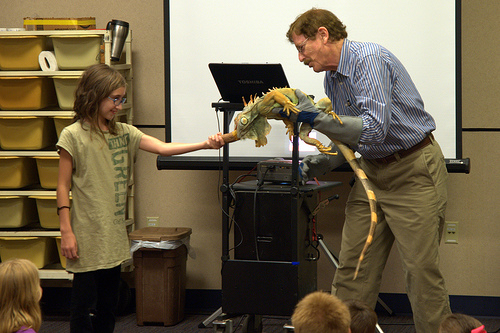
Yet it’s really a taught fear, in some cases on purpose. It makes sense in a way: most people can’t tell the difference between venomous and non-venomous snakes, so it’s only natural to teach a child to stay away from all snakes at all costs.
Fortunately, I’ve never really had a fear of snakes. Indeed, they’ve always fascinated me. I’d like my children to have the same attitude I have: a healthy respect for snakes in the wild (i.e., never touch them) and an understanding that snakes in captivity are another question altogether. If, for example, a lecturer comes with dozens of snakes and lizards and offers the children an opportunity to touch and even, with adult help, to hold the snakes, I’d take the gentleman up on his offer, which is just what happened today.
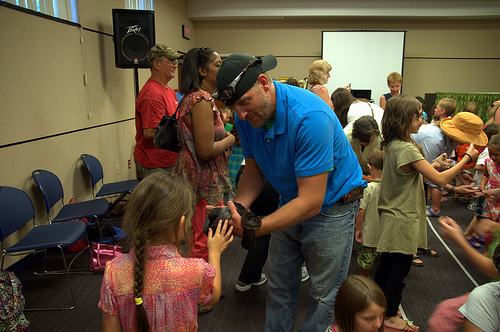
Ron Cromer, with his Snakes Alive program, came to a local library as a reward for kids participating in the summer reading program. According to the program’s web site,
Many people who enjoy nature become profoundly distressed upon encountering a snake. Some folks feel that the only good snake is a dead snake. Learning about snakes provides an opportunity to replace fear and misconception with knowledge. It is our goal to provide knowledge and a safe opportunity to meet these reptiles in hopes of alleviating some fear.
Kids learned about how to distinguish venomous and non-venomous snakes in the area and had a chance to replace some of the old myths (snakes are slimy, cold, dangerous) with some new-found realities. To that end and with adult help, seventy or so kids got the chance to touch snakes and even hold them if they were willing.
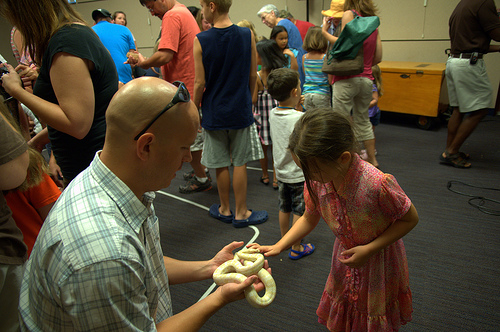
I volunteered with the other adults to help out with the snakes, thinking it would be a great chance to help the Girl develop a healthy attitude about snakes. She was willing to touch but was not interested in holding.
And this was certainly the case with the star of the show, Rosie, an enormous python that Cromer, by law, has to keep doubly contained, in a duffle bag that’s pad-locked in a wooden trunk.
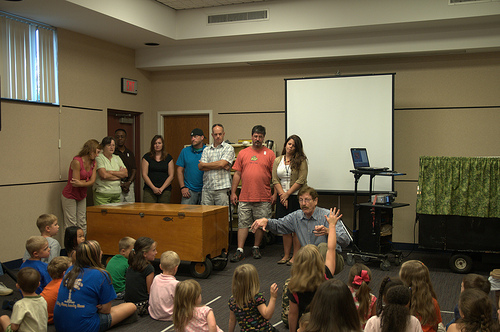
The routine was to be simple: eight adults would initially hold Rosie while providing kids with the opportunity to touch her and even help hold her. But first, we had to get her out,
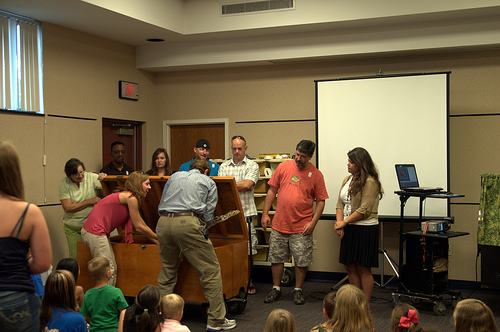
which was a multi-step process
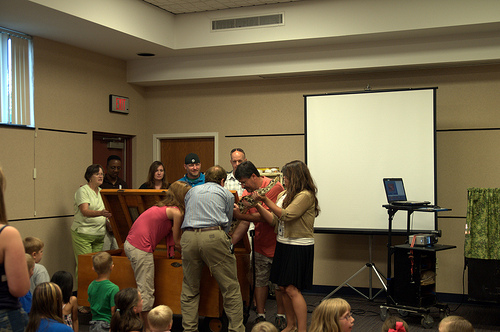
that seemed never-ending
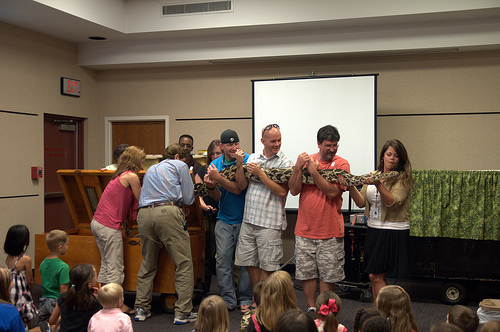
as we pulled and added person after person,
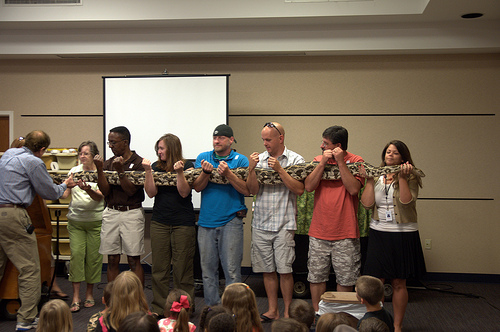
until finally, we had the whole, enormous Rosie out. Once we were all solidly in possession of our bit of snake (“Have some snake,” Cromer said has he guided us in Rosie’s extraction), our host informed us that we were in fact to lift the snake above our heads for full effect.
I thought he was joking.
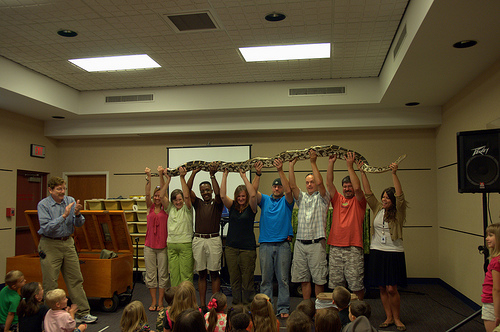
He wasn’t.
The Girl, by this time, had fled to the “Snake-free Zone” Cromer had set up for kids and adults (mainly the latter) who didn’t really feel comfortable being near snakes. It wasn’t so much the snakes that drove her there as the crowd: a large group of people means almost instant uneasiness for her. And if that’s what she takes away from the day, that people are much more threatening than snakes, then it was definitely a success.
Photos with me in them were taken by a neighbor who met us there.